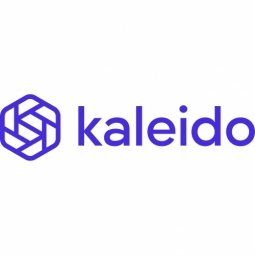Synaptic Health Alliance Works with Kaleido to Solve Healthcare's Toughest Problems Through Blockchain Technology

Customer Company Size
Large Corporate
Region
- America
Country
- United States
Product
- Kaleido's blockchain platform
- Synaptic Health Alliance's provider data exchange
Tech Stack
- Blockchain
- Distributed Ledger Technology
Implementation Scale
- Enterprise-wide Deployment
Impact Metrics
- Cost Savings
- Productivity Improvements
- Innovation Output
Technology Category
- Application Infrastructure & Middleware - Blockchain
Applicable Industries
- Healthcare & Hospitals
Applicable Functions
- Business Operation
Use Cases
- Smart Contracts
- Regulatory Compliance Monitoring
Services
- System Integration
- Software Design & Engineering Services
About The Customer
The Synaptic Health Alliance was founded in 2017 and is a coalition of health care leaders collaborating to solve the industry’s toughest problems through emerging technology. Their objective is to create a blockchain powered platform that enables a culture of innovation, removes friction and solves the shared challenges impacting constituents across health care today. Synaptic’s founding members include Aetna, Humana, MultiPlan, Quest Diagnostics, UnitedHealth Group.
The Challenge
Managed care organizations, health systems, physicians, diagnostic information service providers and other healthcare stakeholders typically collect provider demographic data in separate IT systems maintained by each organization independently. This promotes vast inefficiencies and duplication of efforts, while also potentially reducing data quality. Industry estimates indicate that $2.1 billion is spent annually across the industry chasing and maintaining provider data.
The Solution
To address these challenges Synaptic Health Alliance created the first blockchain initiative in health care. It leveraged Kaleido's blockchain platform to create a provider data exchange—a cooperatively owned, synchronized distributed ledger to collect and share changes to provider data, starting with demographics. By using Kaleido's platform, Synaptic Health Alliance was able to work together with health care organizations such as Aetna, Humana, MultiPlan, Quest Diagnostics, and UnitedHealth Group to leverage blockchain technology to help ensure that data is accurate and sharable for reliable use across the health care ecosystem.
Operational Impact
Quantitative Benefit

Case Study missing?
Start adding your own!
Register with your work email and create a new case study profile for your business.
Related Case Studies.

Case Study
Hospital Inventory Management
The hospital supply chain team is responsible for ensuring that the right medical supplies are readily available to clinicians when and where needed, and to do so in the most efficient manner possible. However, many of the systems and processes in use at the cancer center for supply chain management were not best suited to support these goals. Barcoding technology, a commonly used method for inventory management of medical supplies, is labor intensive, time consuming, does not provide real-time visibility into inventory levels and can be prone to error. Consequently, the lack of accurate and real-time visibility into inventory levels across multiple supply rooms in multiple hospital facilities creates additional inefficiency in the system causing over-ordering, hoarding, and wasted supplies. Other sources of waste and cost were also identified as candidates for improvement. Existing systems and processes did not provide adequate security for high-cost inventory within the hospital, which was another driver of cost. A lack of visibility into expiration dates for supplies resulted in supplies being wasted due to past expiry dates. Storage of supplies was also a key consideration given the location of the cancer center’s facilities in a dense urban setting, where space is always at a premium. In order to address the challenges outlined above, the hospital sought a solution that would provide real-time inventory information with high levels of accuracy, reduce the level of manual effort required and enable data driven decision making to ensure that the right supplies were readily available to clinicians in the right location at the right time.

Case Study
Gas Pipeline Monitoring System for Hospitals
This system integrator focuses on providing centralized gas pipeline monitoring systems for hospitals. The service they provide makes it possible for hospitals to reduce both maintenance and labor costs. Since hospitals may not have an existing network suitable for this type of system, GPRS communication provides an easy and ready-to-use solution for remote, distributed monitoring systems System Requirements - GPRS communication - Seamless connection with SCADA software - Simple, front-end control capability - Expandable I/O channels - Combine AI, DI, and DO channels

Case Study
Driving Digital Transformations for Vitro Diagnostic Medical Devices
Diagnostic devices play a vital role in helping to improve healthcare delivery. In fact, an estimated 60 percent of the world’s medical decisions are made with support from in vitrodiagnostics (IVD) solutions, such as those provided by Roche Diagnostics, an industry leader. As the demand for medical diagnostic services grows rapidly in hospitals and clinics across China, so does the market for IVD solutions. In addition, the typically high cost of these diagnostic devices means that comprehensive post-sales services are needed. Wanteed to improve three portions of thr IVD:1. Remotely monitor and manage IVD devices as fixed assets.2. Optimizing device availability with predictive maintenance.3. Recommending the best IVD solution for a customer’s needs.

Case Study
HaemoCloud Global Blood Management System
1) Deliver a connected digital product system to protect and increase the differentiated value of Haemonetics blood and plasma solutions. 2) Improve patient outcomes by increasing the efficiency of blood supply flows. 3) Navigate and satisfy a complex web of global regulatory compliance requirements. 4) Reduce costly and labor-intensive maintenance procedures.

Case Study
Cloud-based healthcare solution for Royal Philips
Royal Philips wanted to launch its cloud-based healthcare solution HealthSuite Digital Platform in China to deliver services to help cope with challenges related to urbanization and population growth. Philips wanted to achieve this goal by combining mobile, cloud computing and big data technologies. To bring this platform and product to market, Philips required cloud computing and local technical service capabilities in China, in addition to a flexible IT infrastructure that could handle user requests.







